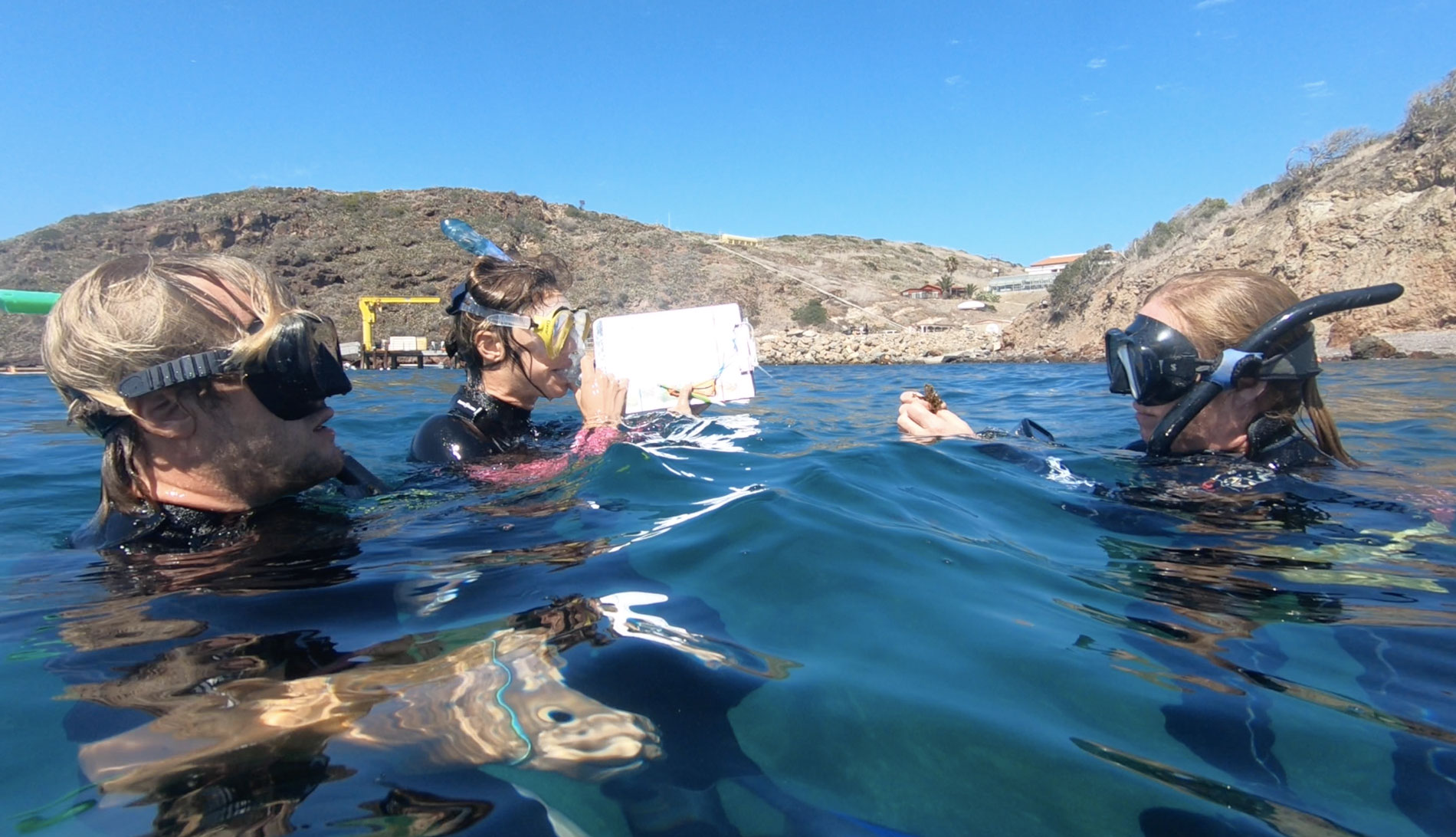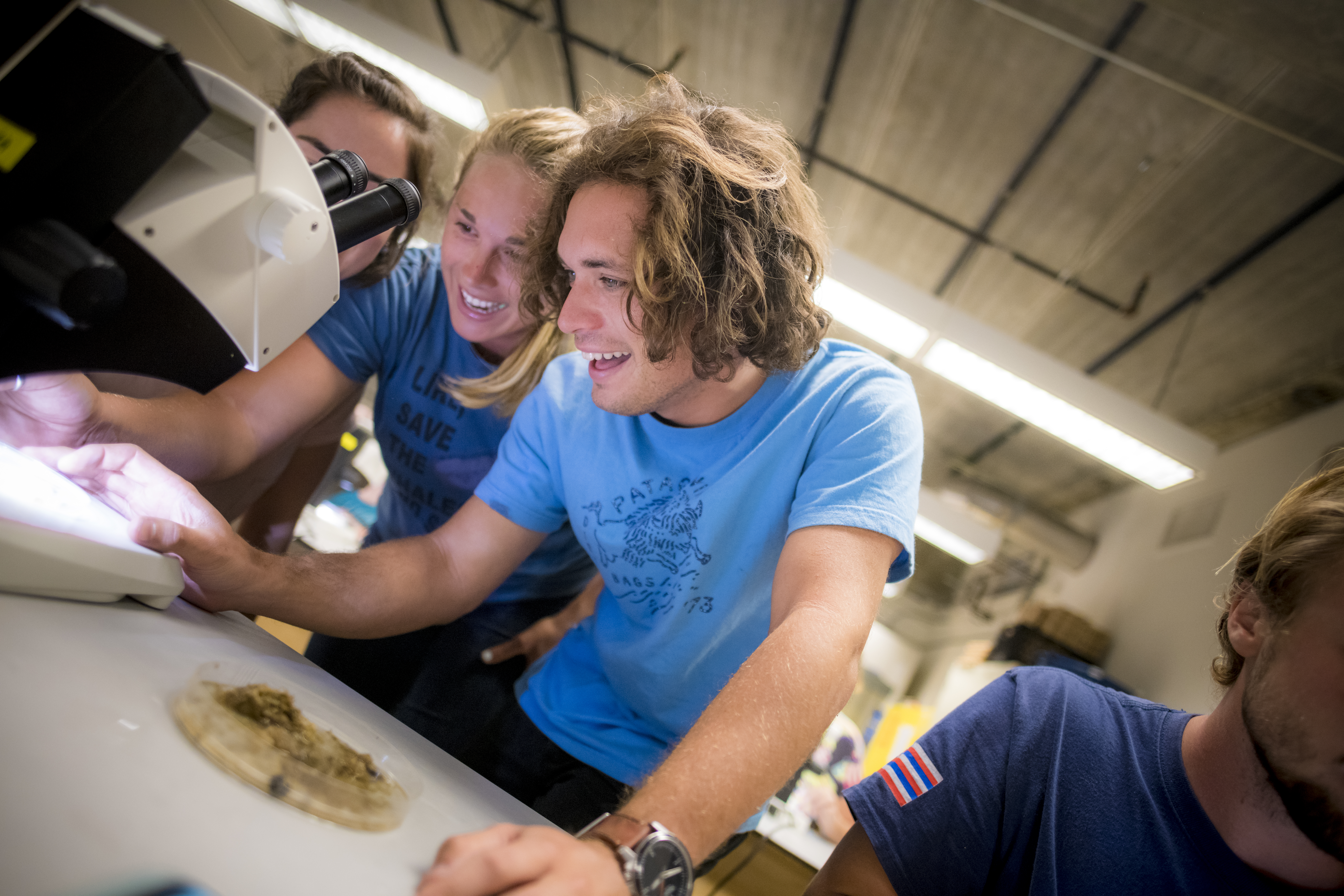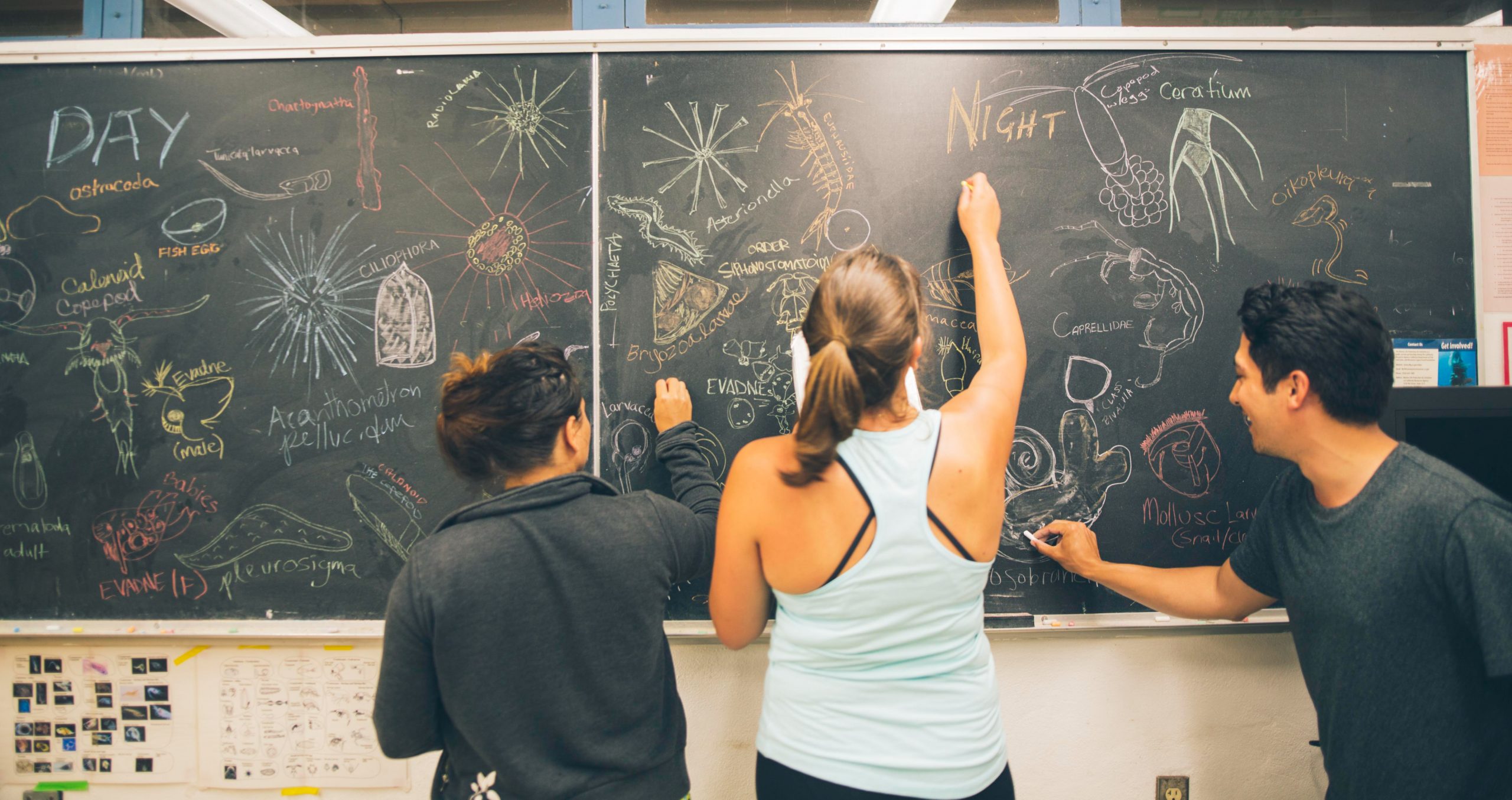
Our curriculum combines interdisciplinary core courses with personalized electives, allowing students to tailor the MAS MBC Program to fit their professional goals.
Curriculum
Our unique, specialized one-year MAS MBC Program begins with a 10-week intensive summer course that features lectures by more than 40 renowned ocean experts, who cover varied marine conservation and biodiversity topics. Laboratory work and field trips complement classroom activities, giving students hands-on experience in applied research and data collection.
Over the course of the academic year, core coursework builds upon this foundation and allows students to take a deeper dive into more focused fields of study. Additionally, students choose 12 individualized elective units from more than 250 course offerings at Scripps Institution of Oceanography and other top-ranked departments at UC San Diego, including Economics, Communication and Visual Arts, the School of Global Policy and Strategy, and Rady School of Management. Students also develop and fine-tune skills in science communication, filmmaking, negotiation and facilitation over the course of the year, with varied opportunities to gain additional training in marine GIS, scientific diving, boating safety, visual storytelling and more.
By pairing core coursework with strategic electives and a Capstone Project that aligns with their career objectives, students will have the knowledge and skills they need to secure and succeed in meaningful leadership positions.

Photo: Erik Jepsen
Electives
With over 250 elective options across 20+ departments, students use the powerful network of faculty experts at Scripps and UC San Diego to hone their specific interests and professional career goals.
Capstone Project
The MAS MBC Capstone Project allows students to design and structure an interdisciplinary, collaborative project that: applies the knowledge gained in the program; enhances student understanding of a marine or coastal issue; builds marketable skills; and has a theoretical grounding and real-world application. Students partner with university faculty, external organizations and agencies to execute projects that culminate in a written paper, film, educational curriculum, business plan, economic analysis, management plan or anything substantial that will prepare students for future employment.
Many past Capstone Projects can be found on eScholarship.
You can also view videos of the 2017 and 2018-2023 Capstone Symposium presentations.
Academic Year at a Glance

Summer
SIO 295S - Intro to Marine Biodiversity and Conservation - Lecture (8 units)
Lectures on biology, ecology, economics, social issues, policies and governance of marine biodiversity. Includes global case studies on ecology, socioeconomic and governance issues, with strong emphasis on practicing written, verbal and visual communication skills and collaborative group work. Students are expected to attend field trips at sea and to various sites around San Diego County as part of the corequisite course.
SIO 295LS - Intro to Marine Biodiversity and Conservation - Lab (8 units)
Laboratory work on major biological taxa, field trips on biodiversity in situ, and computer labs for informatic tools. Students are expected to attend field trips at sea and to various sites around San Diego County as part of the course. Students get practical experience in fieldwork, public speaking, visual communication and team building.
Fall
SIOB 218 - Ocean & Coastal Law and Policy (4 units)
Provides an overview of key laws and policies governing U.S. (and limited international) ocean and coastal waters; examines timely case studies of these policies in practice; brings in a variety of perspectives to illustrate complexities of policy-making; combines lectures with student presentations and in-class exercises. Reading materials are assigned, including statutes, case law, media publications and law review articles. Students will develop critical thinking, writing and public speaking skills and become well versed in how ocean and coastal policies are created and implemented.
ECON 281 - Economics of the Environment (4 units)
Covers environmental issues from an economic perspective. Examines relation of the environment to economic growth and management of natural resources, such as forest and fresh water. Policies on air, water, and toxic waste pollution are discussed, as well as international issues such as ozone depletion and sustainable development.
MBC 258 - Marine Conservation & Communication Practicum I (2 units)
This required course for MAS MBC students focuses on generation and refinement of MAS MBC Capstone Projects, professional networking, and development of critical technical and practical skills. Students broaden understanding of and discuss complex political, social, economic and historical issues related to marine conservation, give peer feedback on Capstone ideas, and interact with MBC leadership and invited guests.
Elective - (4 units)
Choose from over 250 elective options from any department at UC San Diego.
Winter
MBC 259 - Marine Conservation & Communication Practicum II (2 units)
This required course for MAS MBC students focuses on generation and refinement of MAS MBC Capstone Projects, professional networking, and development of critical technical and practical skills. Students broaden understanding of and discuss complex political, social, economic and historical issues related to marine conservation, give peer feedback on Capstone ideas, and interact with MBC leadership and invited guests.
Elective - (12 units)
Choose from over 250 elective options from any department at UC San Diego.
Spring
MBC 296 - MAS MBC Capstone Project (6 units)
Building on the knowledge and experience gained from the MAS MBC curriculum, students will design and execute a complex, interdisciplinary marine or coastal conservation project that has a theoretical grounding and real-world application. This self-directed project should consider varied worldviews and perspectives and add value to the current seascape of marine biodiversity and conservation. Students will present their final deliverable at the annual MAS MBC Capstone Symposium in June of each year.
